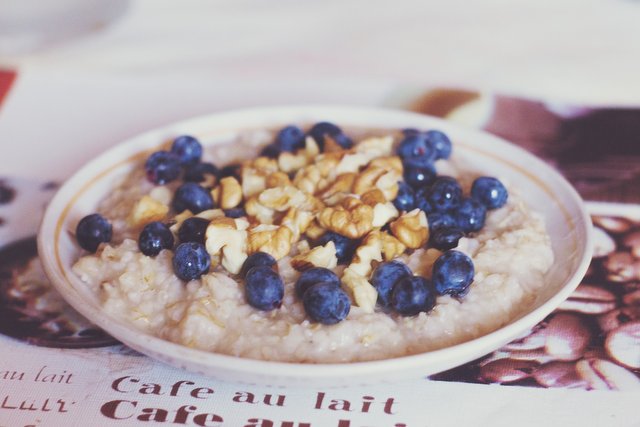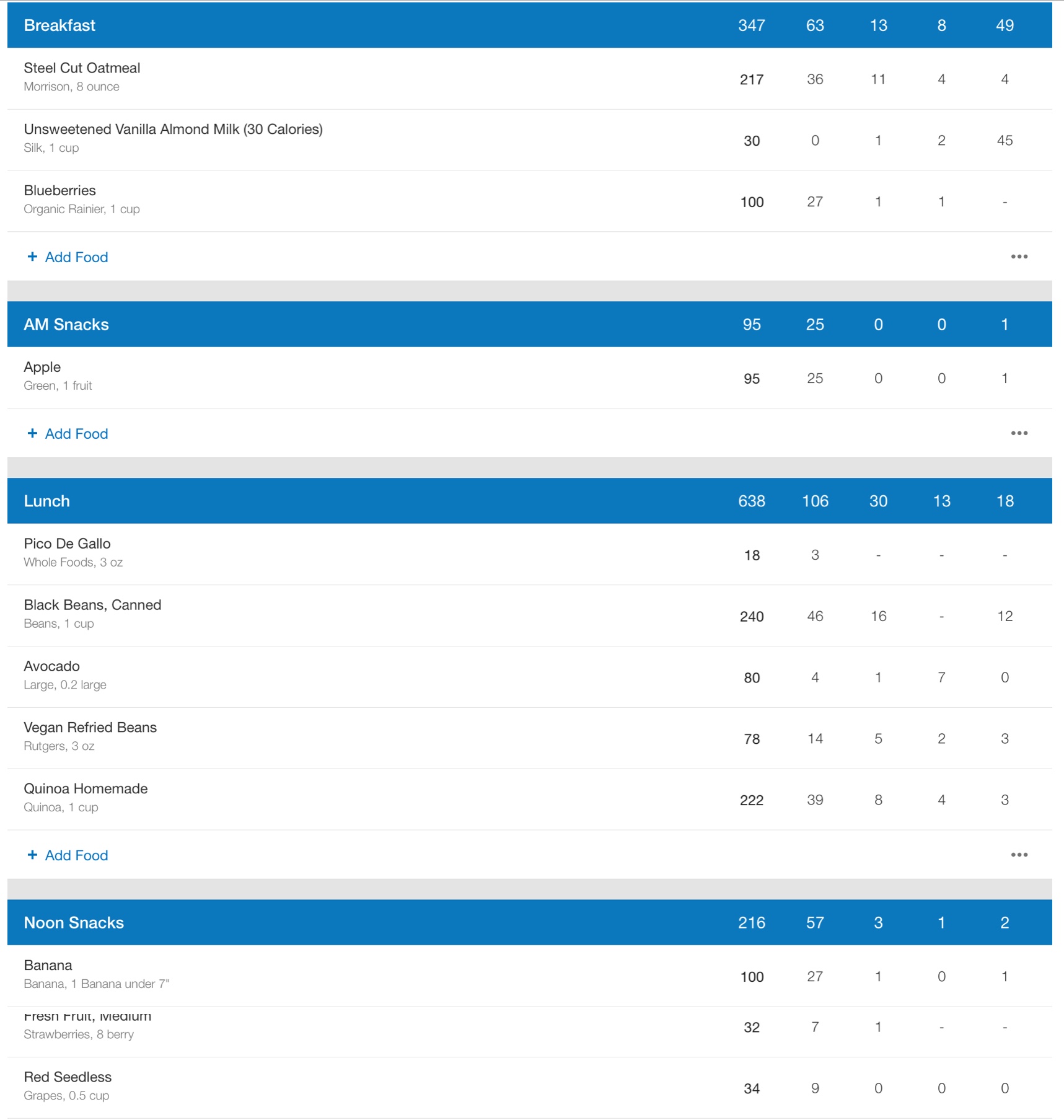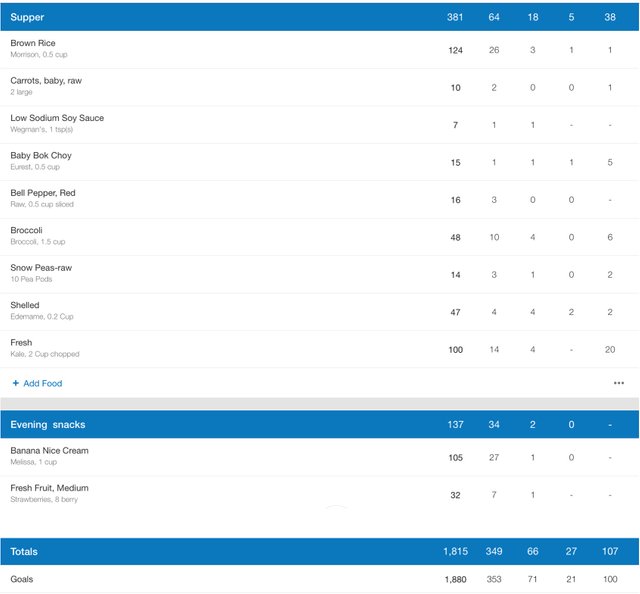January is gone, and summer is fast approaching. New Year's resolutions are broken, and your brand spanking new gym membership is collecting dust. Now you have to lose the five pounds you gained over the holidays on top of the other 20 you promised yourself you would sweat off at the gym. If only there were a way to lose weight by eating as much as you want without counting calories and without exercising like the apocalypse is next Tuesday. Lucky for you, I'm privy to a little secret called fiber.

Fiber is a sure fire way to lose weight fast but has been sadly under appreciated and underutilized by the American population. The RDA of daily fiber is approximately 30-40g per day, but average American only consumes about 15 grams. (1- 2) Fiber can be broken into two categories, Soluble and Insoluble and is found in plants and plant-derived products.
Soluble fiber, found in oatmeal, fruits, nuts and beans, forms a gel in the stomach and small intestine when digested. This gel decreases gastric emptying, which improves satiety. Don't just take my word for it. In 2013, the efficacy of oatmeal and weight reduction was tested with a double-blind, randomized trial. Approximately 90% of the subjects given the real oatmeal saw a drop in body weight. (3-5) In a study comparing brown and white rice, brown won out over white for improved weight loss outcomes. Overweight women were given white rice (0.5g fiber) for six weeks, then switched to brown rice (5.2g Fiber) for six weeks. The women eating brown rice lost more weight, lowered their blood pressure, and decreased their inflammation. (6) Something as small as increasing your intake of whole grains to 3-5 servings a day can improve weight loss. (7)

Eating more plant-based foods to meet your 30g fiber goal will also have a drastic change in your gut flora. Insoluble fiber is found in seeds, plant skins and whole grain bread and rice. This type of fiber is indigestible by humans but can be broken down by the bacteria in our digestive systems. When our gut bacteria digest fiber, it produces propionate. Once this byproduct of fiber digestion is absorbed into our bloodstream, it can inhibit cholesterol synthesis, regulate fat cell genesis as well as delay gastric emptying. (9) People consuming a vegetarian diet were found to have more of the "lean" bacteria present in their gut compared to omnivores. These bacteria were able to reduce total daily caloric intake by 2% without any assistance from the host. This miserly 2% adds up. Increasing your plant consumption and decreasing your fat and animal-sourced protein could prevent 5 pounds of weight gain over a year just by feeding your "lean" bacteria. (8). Some of these species of bacteria are better at extracting calories, which can result in more calories being flushed than retained. (10) I’m lazy at heart. I’d rather veg out on the couch than go to the gym any day. Lucky for me, my bacteria can do the heavy lifting for me!
I’m sure this is all very interesting, but how do you cram in 30-40g of fiber every day? Easy! You eat...a lot, and it’s not as hard as you think. Just down as many fruits, veggies, and whole grains as you can until you are full, then repeat as needed. As long as you keep your fat intake low (~10%) and switch your animal-based protein for plant protein, you can stuff your face all day. (11) Now that’s my kind of diet! What’s even better than stuffing my face? The freedom to eat loads of carbs! I know, I sound crazy, but the supporting science is there. In 1991, a study showed when obese Hawaiians were put on a traditional Hawaiian diet, with 7% fat, 78% carbohydrate, and 15% protein. They were told to eat as much as they wanted and the subjects still lost an average of 17 pounds in three weeks. They also saw an improvement in blood pressure, blood sugar, triglycerides, and cholesterol. (12) Think this is impossible? See the chart below for an example of a day of a Whole Food Plant Based Diet. This example is only 1,800 calories with 65g of fiber, 13% fat, 14% protein, and 73% carbohydrates.


Fiber helps you stay slim for life, it fills you up and keeps you sated, it helps control blood sugar and diabetes and increase your body’s fat burning mechanisms. As long as you are stuffing yourself with plant based fiber instead of animal-sourced products and fat, you can eat all day without worrying about counting calories or carbs. So get out the bikinis and beach towels, summer here we come!
- Institute of Medicine. 2005. Dietary Reference Intakes for Energy, Carbohydrate, Fiber, Fat, Fatty Acids, Cholesterol, Protein, and Amino Acids. National Academy Press. (Food and Nutrition Board, Institute of Medicine, National Academies).
- Do Vegetarians Get Enough Protein? Michael Greger M.D. FACLM June 6th, 2014 Volume 19
- Whole grain intake in relation to body weight: From epidemiological evidence to clinical trials. Nutrition, Metabolism & Cardiovascular Diseases (2011) 21, 901-908.
- Soluble and Insoluble Fiber: What's the Difference? WebMD. Gardner, a. March 2015
- Oat Prevents Obesity and Abdominal Fat Distribution, and Improves Liver Function in Humans. Plant Foods Hum Nutr (2013) 68:18-23
- Is it Worth Switching from White Rice to Brown? Michael Greger M.D. FACLM June 13th, 2016 Volume 31
- Greater Whole-Grain Intake Is Associated with Lower Risk of Type 2 Diabetes, Cardiovascular Disease, and Weight Gain. J. Nutr. 2012. V 142: 1304-1313
- Characterization of Bacteria, Clostridia and Bacteroides in Faeces of Vegetarians Using qPCR and PCR-DGGE Fingerprinting Ann Nutr Metab 2009) 54: 253-257
- Fawning over Flora. Michael Greger M.D. FACLM August 28th, 2012 Volume 10
- Is Obesity Linked to Our Gut Flora? Tsai, F. Coyle, W. Current Gastroenterology Reports. (2009) 11: 307-313
- Or Ins D. www.ornish.com. 2018
- Eat More to Weigh Less. Michael Greger M.D. FACLM January 16th, 2016 Volume 28